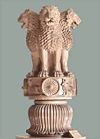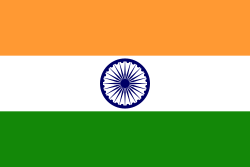
N. Krishnaswamy
Indian Police Service (Retd.)

|
|
N. Krishnaswamy Indian Police Service (Retd.) |
|
| Biography | My Son Natesan | My Police Work | My Social Work | Awards / Recognition | Extras | Photo Gallery |
|
My son Natesan
This is the story of my son Natesan, about whom very little is known
outside my family circle.
And fewer people, if any indeed, know anything of how he occupied my
thoughts during his life time, simply because these thoughts that caused
me immense and unremitting pain through the fifty years that he lived,
were strictly confined to my own memory and were never shared with
anyone else.
Natesan was born on the 22nd of May, 1951. He was a beautiful
child as the picture at top left will show. Over his first two years he
never registered any of the normal milestones of development, never
responding to his sorroundings. Crying in distress or pain that we could
not understand, was his only form of articulation. In his third year
we learnt the cruel truth. His brain had been completely
destroyed by an infection of German measles during my wife, Meenaís
pregnancy. He would never
be able to speak or ever be able to feed himself or look after himself.
He was prone to severe fits at monthly intervals. We had an attendant
waiting on him wholetime for his whole lifetime. At the age of three, he
had to be operated for a cataract in his left eye. In his last years he
started losing his sight. All that we could give him was food, care and
love, and receive nothing, not even a smile, in return. There was
perhaps one solitary occasion in his life, which we
were able to capture in a
photograph, when we foound him laughing in sheer joy (picture at top
right). I could never figure out what could have so filled him with such
joy. My daughter Uma - born as my second child in 1955 - tells me it is surely because of his seeing a vision of the
divine. She goes on to think that his never asking for anything
or doing any wrong, speaks of an existence of utter purity which our
tradition characterizes as that of a Jeevan Muktha.
We had him with us at home for 18 years, with Meena wearing herself to
the bone looking afer him, with little time for herself
or even for Uma. During this period, I accepted two official transfers to
New Delhi, once in 1957, when Natesan was 6, and the second
in 1967 when he was 16, as
a posting there in the
Intelligence Bureau carried the prospect of a fulfilling official career.
I had hoped we would be able to manage Natesan at
There is little to add to Natesanís story, except that my experience
with him led me directly from 1998 onwards, when I
was free from all other commitments, into a new career of serving
the poor and
disabled, specially blind
children, with facilities to acquire literacy and education through both
IT-based and non-IT-based solutions. This is
a another story I have
narrated here. But what may be of interest to the reader at this
point is that on the evening of the 4th January, 2004,
I was conducting a public function at Chennai for
the launch of the Vasantha Braille Cube. This is a simple
inexpensive device I devised, like the Rubikís Cube, which, with the
help of a instruction manual in the local language, would enable any
literate person, perhaps the mother,
to teach braille to the blind child at home, and thereby set the
stage for forcing schools to accept blind children. This prompted
P.S.Ramamohana Rao, the Governor of Tamilnadu, who presided over the
function, to descibe it as a revolutionary solution for the blind in
My narration of this story is to convey a simple message : Accept life as it comes, however harsh. Never get under it. Always get
on top of it.
|
|
|